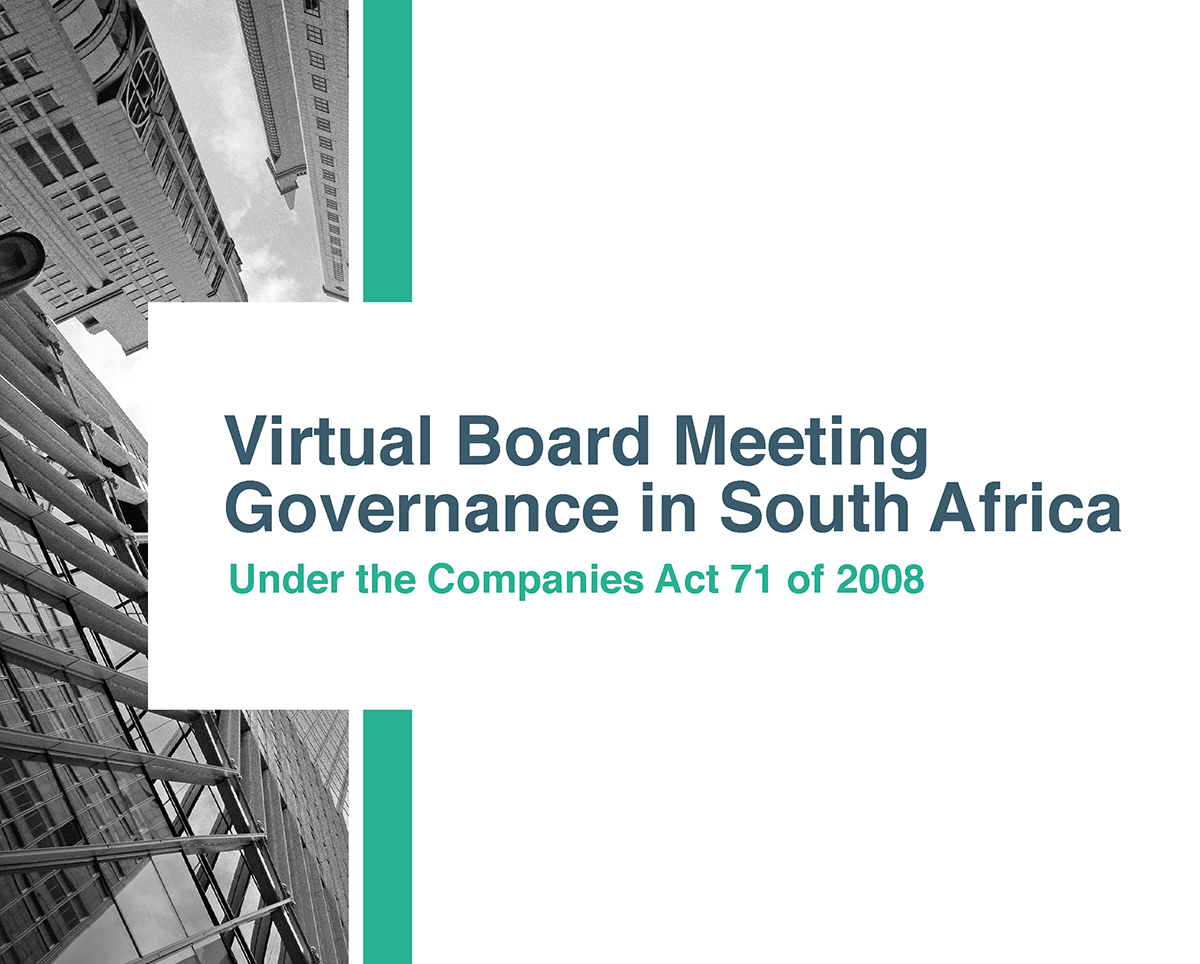Virtual Board Meeting Governance in South Africa

Governance is discipline
Terrance Booysen - CGF Research Institute
Many organisations are running their board meetings with some or all directors present virtually. In the early stages of the pandemic, these meetings were arranged under pressure, using a patchwork of IT systems often assembled without full consideration of governance rules, electronic compliance and security risks.
This paper answers some fundamental questions that arise about the governance of virtual board meetings.
It addresses, in simple terms, how the South African Companies Act of 2008 applies to hybrid board meetings, resolutions arising from these meetings and the responsibilities of directors attending these meetings.
This paper answers some fundamental questions like:
- Are virtual board meetings legal?
- Are resolutions and votes made at virtual meeting legally binding?
Are Virtual Board Meeting Resolutions Binding?
There is also discussion around digital signatures and their contextual validity. The definitions relating to normal electronic signatures vs. advanced electronic signatures are explained in the context of the Electronic Communications and Transactions Act (the ECT Act).
Which leads on to a discussion about electronic voting by board directors on motions put to the board and the validity of these kinds of votes.
Meeting Security Issues
The paper also discusses the rise of hybrid meetings and the knock-on affect these kinds of meetings have had on security. In fact, some security concerns relate to IT infrastructure issues caused by hasty implementations that occurred during the rush to accommodate changes wrought by COVID19.
Board Meeting Compliance Comes From Having a Competent Chairman
A strong chairperson provides clear guidelines and keeps a board meeting on track by keeping control of the attendees. The strong chairman enforces meeting discipline, which induces an controlled environment for company directors to make sound decisions.
In closing and in the interests of holding better board meetings, a Code of Virtual Meeting Conduct for Directors is proposed.
